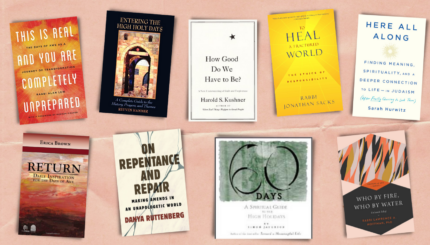You could make the case that Philip Roth wrote the best Jewish novel of each decade since the 1950s. His 1959 debut Goodbye, Columbus, 1969’s Portnoy’s Complaint, and 1979’s The Ghost Writer are all easy contenders for best American novel of their respective decades, Jewish or otherwise.
In The Counterlife, Roth’s 14th novel and his most ambitious, audacious, and inventive till that point, leaves America behind, spiraling headlong into Israel. The novel is divided into five parts, each a variation on the same premise and each somewhat contradictory.
The protagonist is Nathan Zuckerman, who makes his fourth appearance in Roth’s work. It begins with Henry, Nathan’s brother, who has a heart condition for which he takes medication that makes him impotent. He turns to his brother for advice: Should he undergo an operation that, if successful, will restore his heart and fix his impotency but would kill him if it fails?
Then the novel explodes into a kaleidoscopic, choose-your-own-adventure of a story.

Help us keep Jewish knowledge accessible to millions of people around the world.
Your donation to My Jewish Learning fuels endless journeys of Jewish discovery. With your help, My Jewish Learning can continue to provide nonstop opportunities for learning, connection and growth.
In one narrative, the operation fails and Nathan can’t bring himself to speak at his brother’s funeral. In another, Henry survives, but experiences a spiritual awakening, running off to an illegal West Bank settlement. In the next, after trying to persuade Henry to come home, Nathan’s plane is hijacked flying back from Israel. And in yet another, Nathan is the impotent one with a heart condition and Henry is estranged.
If this sounds a bit dizzying, or self-indulgent—well, it might be. But it’s also a roaringly brilliant investigation into what it means to change a life, or simply to live a life—a Jewish life.
“The construction of a counterlife that is one’s own anti-myth,” Nathan says, is “a species of fabulous utopianism, a manifesto for human transformation as extreme—and, at the outset, as implausible—as any ever conceived. A Jew could be a new person if he wanted to.”
He may be talking about Zionism, but the broader truth is there: to change a life is to undertake the miraculous. This is a novel about such miracles.
Shifting his authorial eye from the Jews of the American northeast to the entire nation of Israel, the book, which won the National Book Critics Circle Award, made Roth a global writer in a new way. And though he would return to Israel with 1993’s Operation Shylock, Roth was too much in love-hate with America to stay away from his homeland for long.
Excited to read more? Get your copy of The Counterlife here.




